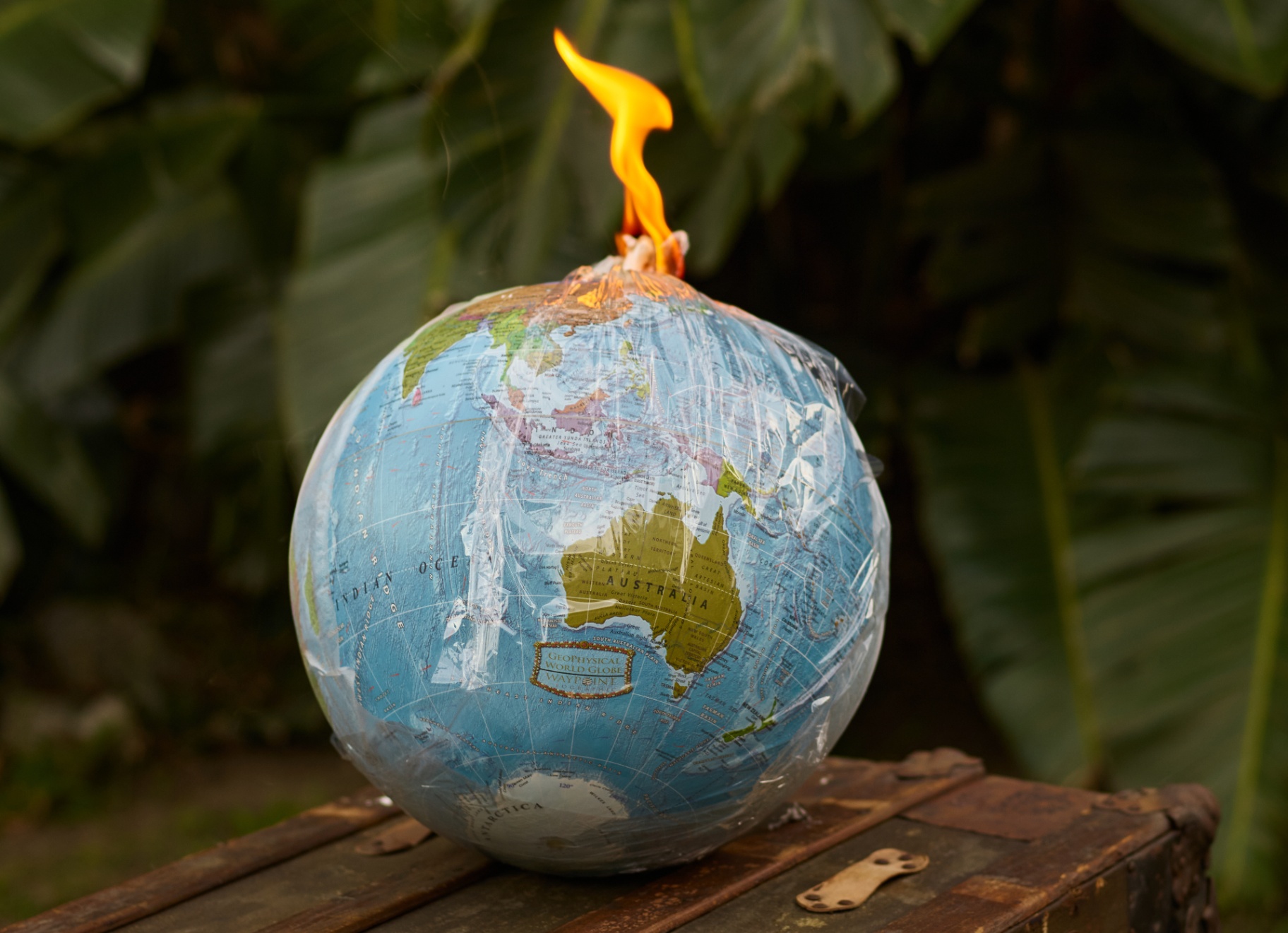Worldwide Wildfires: How Do We Deal with Climate Anxiety?
Lately, the news has bombarded us with story after story of a plague of worldwide wildfires. We have all reeled from report after report of new and incredibly destructive blazes.

Photo by ArtHouse Studio
We are staggered by the destruction of natural environments, developed areas, and, in many cases, by enormous loss of life. These events are occurring not just in one locale, but all across the earth. At one moment we’re stunned by the pictures and stories of destruction from Lahaina, Maui, Hawaii. Almost simultaneously, we learn of devastating fire in Greece and almost unprecedented catastrophes on Tenerife, Canary Islands. This same summer incredibly violent, destructive events in the United Kingdom, Italy, Spain and Kazakhstan are all part of the blanket of worldwide wildfires.
And we haven’t even begun to outline the extent of wildfire disaster here in our own country of Canada, which is surely one of the nations hardest hit. Canada is dealing with wildfires pretty much right across the country, with particular concentrations of out of control wildfires in the Northwest Territories, British Columbia, Alberta and Nova Scotia.
Right at the moment we are tensely watching to determine the fates of the cities of Yellowknife, N.W.T. and West Kelowna and Kelowna, B.C. One of our nation’s most astute environmental journalists, Linda Solomon Wood of the National Observer has noted that “In Canada, an area the size of Greece [italics mine] has burned.”
It is clear that we are witnesses to the unfolding of momentous and grave events. The scientific evidence clearly shows that climate change is directly related to the increase in worldwide wildfires.
For Jungians, this pattern of events brings to mind a famous remark of C. G. Jung‘s to the effect that the face that nature turns toward us is a mirror of the face that we turn toward nature.
Facing the Reality of Increasing Worldwide Wildfires
Suppose that we accept that the increase in worldwide wildfires is linked to climate change, and that it is a trend that will continue into the future. What does that mean for us, on the personal level?
Certainly, for very many people, one consequence of growing awareness of climate-related negative impacts, such as the current worldwide wildfires, is climate anxiety. Climate anxiety is a recognized response to climate-related issues, and it is acknowledged by highly respected professional organizations such as the American Psychological Association. It can manifest as anything from mild stress to serious and substantial depression and anxiety, or in other clinically recognized ways. There is strong evidence that climate anxiety is particularly prevalent in the young, and in those who are particuarly vulnerable. Yet, there is good reason for believing that climate anxiety affects all of us.
If climate anxiety affects all of us, what can we do in response to it? How are we supposed to deal with it?
Should We Ignore Our Climate Anxiety?
Someone might suggest that, because climate anxiety is a form of anxiety, and is something that interferes with a positive outlook, we should work hard to ignore it or eliminate it. After all, doesn’t climate anxiety interfere with enjoyment of our lives?
Well, this raises a very important point. It’s essential that we recognize that there are plenty of cases in which, as a matter of mental health, we have to acknowledge our anxiety, because our anxiety has something important to tell us.
To use a vivid example, let’s say you find yourself in a small room filled with agitated poisonous snakes. This is not the moment to ignore your fear/anxiety and start singing “Always Look on the Bright Side of Life”. The anxiety we experience in such situations is trying to help us, and to get us to take important steps to help ourselves.
Most of us are in some degree of denial about issues of climate change such as the worldwide wildfires. It is probably going to be essential for us to acknowledge that we have a level of appropriate anxiety about climate issues.
So, What Should We Do About Climate Anxiety?
As suggested above, the most important first step is to acknowledge that we have climate anxiety, and for some very good reasons. It is also important to acknowledge that some people, such as young people who are concerned about a long future outlook, and the vulnerable, may have even more climate anxiety.
It’s also going to be important to find ways to deal with climate anxiety. This may involve specific approaches to anxiety management, but it may also involve another element.
Jung often envisioned the source of anxiety as an energy that wants to flow in our lives. When that energy is blocked, it turns into anxiety. On this view, it can be absolutely essential for us to mobilize the stuck energy or libido, and to get it to flow. We can do this by identifying what has value or meaning, what draws us and moving towards it.
This raises the question of whether there is anything we can do in response to our climate anxiety that would have value or meaning or take us in the direction of a purpose. Could it be that we need to take our climate anxiety and fear, and put our energy into doing something that feels creative and meaningful in response, and that makes a difference in our world relative to climate issues?
Meeting a challenge of this kind may bean important way to deal with our climate anxiety. It may also form an important element in our individuation—the process of becoming our most fundamental and authentic self.
Wishing you every good thing or your personal journey,
Brian Collinson, Registered Psychotherapist and
Jungian Analyst
Certified Clinical Anxiety Treatment Professional
© Brian Collinson, 2238 Constance Drive Oakville, Ontario
